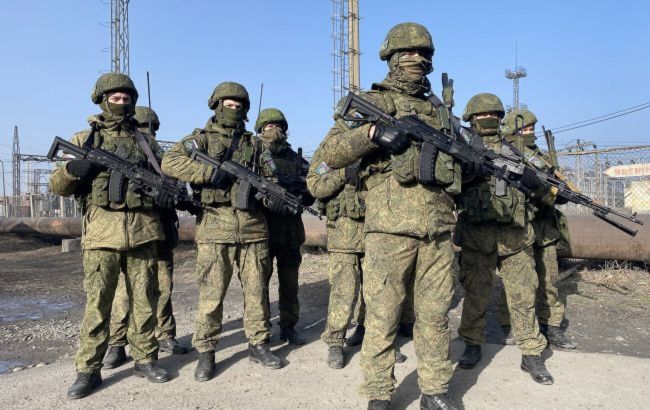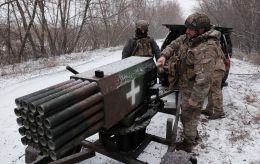Kremlin fears 'war heroes' as sociologists test their electoral appeal
 Illustrative photo: Russian soldiers (Russian Defense Ministry / Facebook)
Illustrative photo: Russian soldiers (Russian Defense Ministry / Facebook)
Russian sociologists will study whether voters are ready to support participants of the war against Ukraine, according to the Center for Countering Disinformation of Ukraine’s National Security and Defense Council.
As Russia prepares for the 2026 State Duma elections, the Kremlin appears unsure whether Russians are willing to vote for participants of the war against Ukraine, analysts from Ukraine’s Center for Countering Disinformation report.
Sociologists have therefore been tasked with determining whether the large number of war participants included in party lists might alienate voters.
At the same time, the CCD notes that Russia continues to romanticize and glorify the participants of the so-called "special military operation."
Controlling 'heroes'
According to the CCD, between 70 and 80 such "heroes" are expected to enter the State Duma in 2026, officially to "renew the composition of parliament," but in reality to keep under control those who could become a threat to the regime after returning from the front.
The Kremlin also seeks to use this as a "social elevator" model for war participants, presenting it as an opportunity for career advancement.
"Moscow understands well that these 'veterans' are not romanticized heroes but armed men, including former convicts, who could become catalysts for rising crime, social tension, and political instability, posing a direct threat to the stability of Putin’s regime," the CCD said in its statement.
Authorities reportedly expect that, once they receive parliamentary mandates, the war participants will remain loyal and serve as intermediaries between the government and returning soldiers.
The CCD also points out that many of these so-called veterans are fake, having never actually fought in combat but serving to create an illusion of mass participation and mobilization.
Belarusians fighting for Russia
Earlier, RBC-Ukraine reported that a list had surfaced online containing names of Belarusians who may be fighting on Russia’s side.
However, the list may be incomplete, as some Belarusian citizens also hold Russian passports and are not officially counted as "foreign legionnaires."
For most foreign mercenaries, money is the main motivation to join the Russian army, while for Belarusians, it is ideology.
Because Belarusian and Russian societies share the same information space, Belarusians are more likely to believe Kremlin propaganda about "Nazis in Ukraine" and fight for what they see as a "shared Soviet past."
Mobilization in Russia
The CCD also explained why Russia announced its largest military draft in spring 2025: the expansion of the army signals the Kremlin’s intention to continue hostilities despite official statements about readiness for negotiations.
Russia has been actively recruiting prisoners to fight against Ukraine since the first year of the invasion. Initially organized by Wagner Group founder Yevgeny Prigozhin, the recruitment is now carried out by the Russian National Guard, which has taken over the process after Prigozhin’s death.
The Russian Defense Ministry is also enlisting women from prisons as assault troops and snipers. Recently, the State Duma even allowed convicts sentenced for rape to sign contracts to participate in the war against Ukraine.

